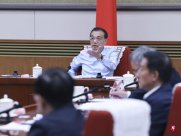A survey launched by the China International Trade Promotion Commission showed that more than half of Chinese foreign trade companies believe that decline in orders is the biggest difficulty.The China Trade Council also said that in terms of policy and demands, these enterprises expect to accelerate the restoration of domestic offline exhibitions and improve the convenience of the flow of cross -border personnel.
According to the actual records provided by the China Trade Council's website, Sun Xiao, a spokesman for the China Trade Promotional Assembly, announced the results of the investigation at the press conference on Thursday (September 29), and found that 60.02%of foreign trade companies said that the decline in orders was facing facing the decline in orders.The biggest difficulty, 51.83%of the enterprises felt the diversion of orders, 56.22%of companies believed that the cost of raw materials rose, and 47.68%of companies reflected the epidemic affected production.
Sun Xiao admits that foreign trade enterprises are facing multiple problems such as external demand contraction, insufficient order, high comprehensive costs, repeated problems of epidemic situations, and increased economic and trade frictions.
Sun Xiao also said that the policy demands of foreign trade enterprises are mainly reflected in three aspects: First, continue to increase the implementation of tax cuts and fees, continue the relevant tax reduction and exemption preferential measures to help enterprises reduce costs and increase their trustworthiness., Solve the problem.The second is to accelerate the restoration of domestic offline exhibitions, actively organize foreign trade enterprises to participate overseas, and improve the convenience of the flow of cross -border personnel.The third is to increase the training and consultation of foreign trade enterprises to use preferential policies for free trade agreements to help enterprises can effectively respond to international economic and trade frictions, and comprehensively improve the use of preferential policies and anti -external risk capabilities.


